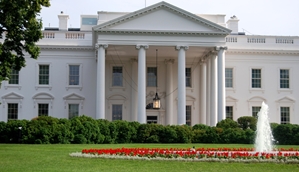Recently, military officials and reporters have warned of the imminent military airstrikes in Syria after President Barack Obama authorized aircraft surveillance missions over the Islamic State of Iraq and the Levant territory. However, the president stated in a press conference recently that airstrikes in Syria would not occur in the near future, as a plan of action in Syria is still being formulated.
No strategy in Syria yet
"We don't have a strategy yet," Obama told reporters. "We need to make sure that we've got clear plans, that we're developing them. At that point, I will consult with Congress and make sure that their voices are heard, but there's no point in me asking for action on the part of Congress before I know exactly what it is that is going to be required for us to get the job done."
Surveillance missions in Syria began just days before Obama gave statements in a press conference regarding military missions in the region. Now, it is clear the president will be taking his time to assess the threat posed by ISIL, sort through options designed by the Pentagon and consult with Congress about future measures in the country. Congress is still gone during the summer recess, and they will return come early September. According to CNN, Obama has made it clear that planning military intervention in Syria will take time, and a careful regional strategy must be formed before action is taken.
Commitment to Iraq
In the meantime, the president has reiterated military commitment to U.S. officials in Iraq. Airstrikes are already being used in defense of American personnel in Erbil and Baghdad, according to The Associated Press. ISIL militants have attempted to secure more area within the region and threaten U.S. individuals, but airstrikes have successfully pushed the militants back from the Mosul dam and from other key areas.
However, the military measures alone will not extinguish ISIL, according to the president.
"The idea that the United States or any outside power would perpetually defeat ISIS … is unrealistic," Obama said. "Our military is the best in the world. We can route ISIS on the ground and keep a lid on things temporarily. But then as soon as we leave, the same problems come back again."
Instead, Obama stated that a strong Iraqi government with a clear handle on defensive security will be necessary to make headway in the area. To establish that government, the people of Iraq would need to make compromises. In addition to that, the president encouraged surrounding regions and people to band together to help defeat ISIL.
"This should be a wake-up call to Sunni, to Shia – to everybody – that a group like ISIS is beyond the pale; that they have no vision or ideology beyond violence and chaos and the slaughter of innocent people," Obama said. "We've got to all join together – even if we have differences on a range of political issues – to make sure that they're rooted out."
An uncertain future
The AP equated Obama's aim to collaborate with Congress to similar events one year ago when the president sought to authorize airstrikes in Syria in retaliation for chemical weapons use. However, in a change of heart, Obama brought the issue to Congress for approval. Facing further scrutiny, Congress rebuffed his request for a vote and the president later canceled any plans to intervene in Syria. Some believe requesting another congressional vote could cause the same turn of events. However, Obama has not revealed plans to request a vote from Congress if he decides to authorize future airstrikes in the region.

